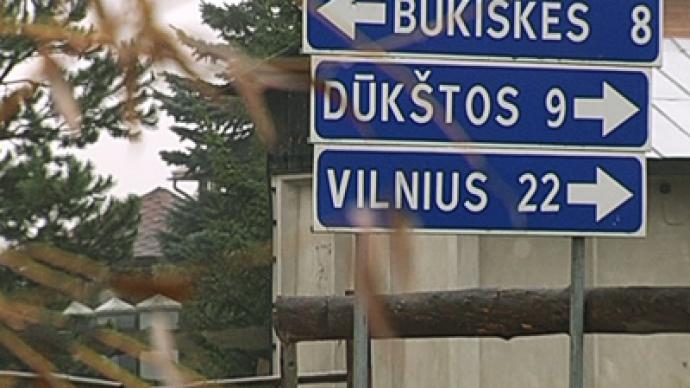Tongue-tied: Lithuania’s Polish minority banned from using native language

Poles in Lithuania say they are being persecuted for using their native language to spell Polish street names and even surnames. But authorities in Vilnius insist they are simply upholding the law.
Almost a quarter of a million ethnic Poles live in Lithuania. Warsaw ruled the land for centuries. So nowadays in some villages the Polish amount to over 80 per cent of the population.Shop owner Galina Tomazsevska decided to make life easier for the Poles living in rural Lithuania. She put signs in both Lithuanian and Polish languages in her store. But then authorities said she would be fined 200 euros for violating the state language law.“I didn’t feel as if I was doing anything wrong,” Galina says. “This was something the local Polish community needed. Besides, I had the official state language on these signs as well. This is a violation of human rights. I was told I could have signs in English, German or French, but not in Polish.”Another sticking point is the street names in villages where the Polish community lives. It is not the fact that Poles use both languages on street signs, but that they use word for word translation which enrages the authorities in Vilnius. Secretary of the Association of Poles in Lithuania claims they even fail to spell their names correctly. All ID cards and passports of ethnic Poles must be written in the state language. Edward Trusewicz says that the history of Polish-Lithuanian relations was difficult, but it must have been left behind when the two countries became members of the EU.“Lithuania was so keen on becoming part of the EU, that they signed several documents on accession,” says Edward Trusewicz. “One of those was the European charter on national minorities. It says that we can easily use our native language. But now for some reason, the Lithuanian authorities are rolling back on their obligations to Brussels.”RT turned to the body which overseas the use of language for answers. It says no obligation was violated and that in fact Vilnius had every right to persecute the use of Polish.“Indeed, the charter on national minorities gives the Poles in Lithuania the right to use their language,” says Arunas Dambrauskas from the Language inspection of Lithuania. “But at the same time, the document says that a law of a country prevails over the charter’s clauses. And according to the law in Lithuania, we have every right to fine them for using their language on signs.”Some Poles living in Lithuania suggest that this is Vilnius’ revenge for centuries of Polish occupation. Authorities on the other hand refute such claims and say that the use of Polish is being discussed within the country’s parliament. But nobody can tell what will prevail – the attitude to the events of the past or the wish to be part of the united European legislation.













